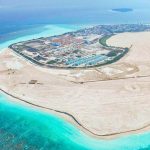
As the world observed Labour Day, President Dr Mohamed Muizzu announced a significant milestone in the Maldives’ efforts to address longstanding issues faced by expatriate workers. In a post shared on Thursday, the President revealed that biometric data from 150,000 migrant workers has been collected under ‘Operation Kurangi’, an initiative launched by the Ministry of Homeland Security and Technology on 2 May 2024.
The operation involves the collection of ten fingerprints and facial recognition photographs, aimed at building a comprehensive biometric database to assist in the identification and regularisation of migrant workers in the country. With expatriates making up a substantial portion of the Maldivian workforce, the initiative is being framed as a key step toward safeguarding their fundamental rights.
President Muizzu described the occasion as a “new milestone” for his administration, noting that Labour Day serves as a reminder to recognise and acknowledge the contributions of foreign workers, many of whom remain undocumented and vulnerable due to their irregular status. He reiterated his administration’s commitment to permanently resolving these issues by enhancing the systems used to track and manage expatriate labour.
The Ministry of Homeland Security and Technology has stated that Operation Kurangi will not only help in regularising workers but also ease recruitment challenges currently faced by local employers. The first phase of the operation is focused on bringing all expatriate workers under legal frameworks, a move expected to significantly reduce labour exploitation and undocumented employment practices.
According to the latest census data, expatriates account for 132,371 out of the Maldives’ estimated 500,000 population. A large proportion of them are believed to be undocumented, working without proper legal safeguards.
With the biometric database now updated for 150,000 individuals, the government aims to build a more transparent and enforceable regulatory environment for migrant labour, a move that could have lasting implications for labour rights and national security in the country.












